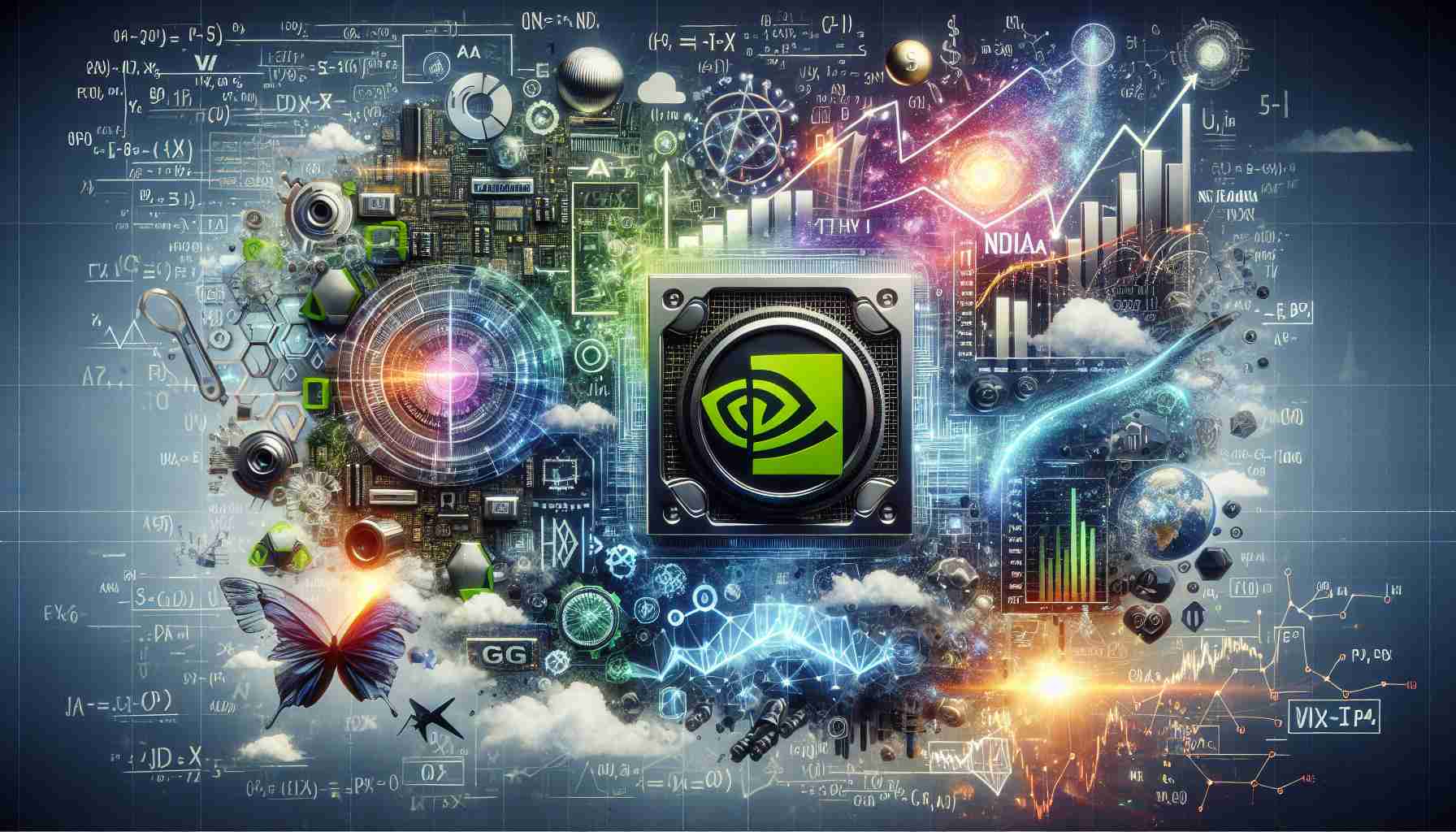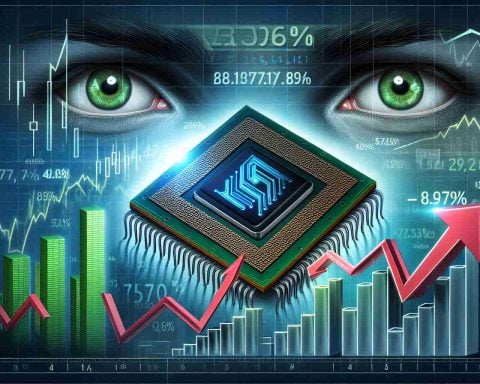- Nvidia faced a significant market setback following the announcement of DeepSeek’s AI chatbot, with a $600 billion drop in market cap.
- DeepSeek developed its chatbot using older hardware at a fraction of Nvidia’s costs, raising questions about Nvidia’s market dominance.
- Analysts suggest that increased competition may benefit Nvidia by encouraging industry-wide innovation and efficiency.
- Nvidia has acknowledged DeepSeek’s achievements, indicating strong ongoing demand for its products in China.
- The sell-off is viewed as an overreaction, and Nvidia’s long-term prospects remain robust, with potential growth ahead.
- Investors are advised to consider Nvidia as a potentially resilient investment opportunity amidst current market fluctuations.
Nvidia, the famed leader in artificial intelligence (AI) chips, found itself in hot water when a Chinese start-up, DeepSeek, announced it had developed a chatbot rivaling OpenAI’s ChatGPT. The news sparked a wildfire of sell-offs, with Nvidia’s market cap plummeting by an astonishing $600 billion in a single day. But rather than raising alarm bells, this development has ignited new conversations among investors.
DeepSeek’s claimed achievement, created for just $5.6 million with older, compliant hardware, initially cast doubt over Nvidia’s dominance. The tech titan has long boasted a significant competitive edge, leveraging its cutting-edge GPUs and a robust software platform with impressive profit margins. However, concerns swelled that a lean start-up could disrupt this stronghold.
Yet, many analysts believe this disruption might be a blessing in disguise for Nvidia and the AI sector as a whole. Experts argue that increased competition could drive efficiency throughout the industry, allowing companies to innovate without exorbitant costs. Nvidia has publicly commended DeepSeek for showcasing how accessible resources can still yield groundbreaking results, highlighting that demand for its chips in China remains robust.
While the sell-off may appear drastic, it’s been characterized as an overreaction. Nvidia’s long-term viability isn’t in jeopardy—many see it as well-positioned to not just survive but thrive, adapting to the fast-evolving AI landscape. For investors eyeing the market, the consensus is clear: Nvidia’s journey is far from over, and now could be an opportune moment to consider buying into its resilient future.
Can Nvidia Bounce Back? The AI Chip Wars Heat Up as DeepSeek Emerges
Nvidia vs. DeepSeek: A New Era in AI Competition
Nvidia, the leading name in artificial intelligence (AI) chips, recently faced a significant market reaction following the announcement of DeepSeek, a Chinese start-up that claims to have developed a chatbot rivaling OpenAI’s ChatGPT. This announcement resulted in a staggering $600 billion decline in Nvidia’s market cap, drawing significant attention from investors and analysts alike.
# Market Trends and Insights
1. AI Chip Market Growth: The AI chips market is projected to grow at a CAGR of over 26% from 2023 to 2030, driven by the increasing adoption of AI technologies across various industries. Nvidia’s GPUs, while currently under pressure, are still anticipated to lead in performance and efficiency.
2. Investment Outlook: Analysts suggest that Nvidia remains a solid investment. With substantial growth in sectors like automotive AI, healthcare, and cloud computing, Nvidia’s diversified portfolio may offset potential setbacks from competition with start-ups like DeepSeek.
3. Technological Innovations: Nvidia continues to invest heavily in research and development for next-generation AI chips, such as its Hopper architecture, which promises enhanced performance and energy efficiency. This commitment to innovation indicates a resilience against market fluctuations.
Key Questions About the Future of Nvidia and AI Chips
1. How will Nvidia respond to the emerging competition from start-ups like DeepSeek?
Nvidia is likely to bolster its software ecosystem alongside hardware innovations, ensuring that its GPUs remain the preferred choice for developers working in AI. The company may also consider strategic partnerships or acquisitions to integrate new technologies.
2. What implications does DeepSeek’s success have for the broader AI industry?
DeepSeek’s development highlights the potential for lower-cost innovations in AI. This could lead major companies, including Nvidia, to rethink their strategies and possibly lower pricing on certain products to maintain competitiveness, stimulating further industry growth.
3. Should investors consider Nvidia a good buy after the stock sell-off?
Despite recent volatility, many analysts assert that Nvidia’s long-term fundamentals remain strong. The current dip might present a buying opportunity, especially for investors who believe in the ongoing growth of AI applications and the solid positioning of Nvidia in the market.
Pros and Cons of the Current Market Situation
Pros:
– Increased competition may spur innovation across the industry.
– Nvidia’s existing infrastructure and expertise in AI still provide a strong advantage.
– Growing demand for AI technologies is expected to support Nvidia’s long-term growth.
Cons:
– Dependence on the high-performance GPU market could expose Nvidia to risks if new technologies emerge.
– Market reactions like the recent sell-off may deter some investors in the short term.
– Proliferation of cheaper alternatives could pressure profit margins.
Use Cases and Limitations of AI Technologies
AI chips are versatile and find applications across various sectors, including:
– Healthcare: Deploying AI for diagnostics and patient monitoring.
– Automotive: Enhancing autonomous vehicle systems.
– Finance: Analyzing data for predictive analytics and fraud detection.
However, limitations include high development costs and potential regulatory hurdles, especially concerning data privacy and ethical AI usage.
Conclusion
The landscape of AI chip manufacturing is undoubtedly evolving, and while movements from players like DeepSeek may unsettle the market temporarily, they also open doors for innovation and adaptation. Nvidia’s established presence and ongoing commitment to research and development position it as a formidable leader, ensuring it can navigate the waters of competition while continuing to thrive.
For further insights on the future of AI and technology investments, visit Nvidia.



















